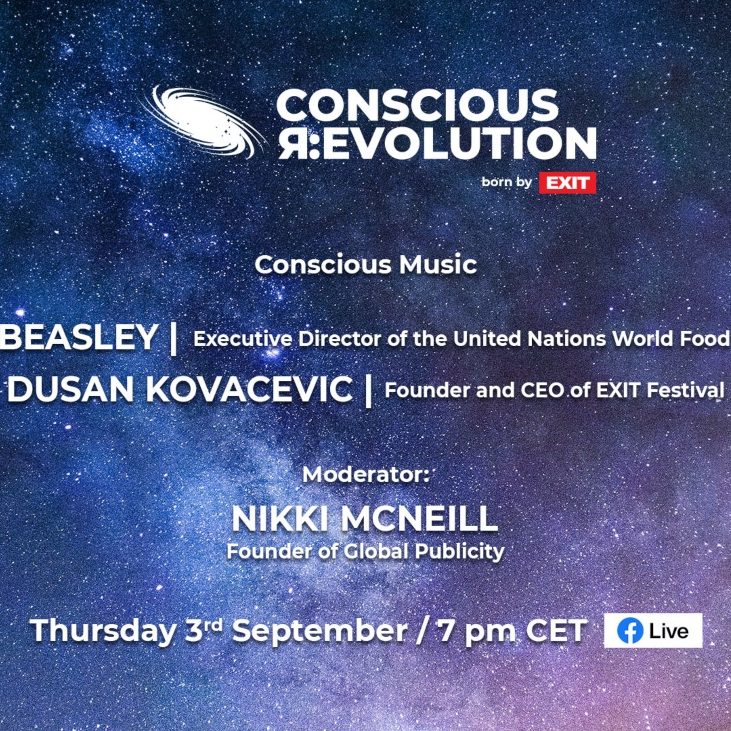Galvanizing support for those hardest hit by the pandemic, the Life Stream Project brings together world-class acts who will perform at Novi Sad’s Petrovaradin Fortress, the home base of EXIT festival, for a million-strong online audience from September 3rd to 6th.
Music for a good cause: EXIT festival, in partnership with the United Nations World Food Programme (WFP), the world’s largest humanitarian organization, is launching the next step of Life Stream Project, in aid of the efforts to alleviate the suffering of millions who have lost their livelihoods to the pandemic and are falling deeper into hunger.
The pandemic is compounding problems and multiplying misery, especially for those on the front-lines of climate change battling frequent drought, storms and floods that strain food production, exacerbate hunger and push people deeper into poverty. It is set to push 270 million people into food insecurity before the end of 2020 – an 80 percent increase from 2019 – and the impact will be the harshest for those who were already suffering.
“EXIT started as a youth movement for peace and freedom in Serbia and Balkans and social activism is still at the forefront of our activities. This year has been hard for all of us, but even in times like this, we must find the strength to do what we can to help those who are the most vulnerable” – said founder and CEO of EXIT Dušan Kovačević.
The Life Stream Project
Life stream has been launched last year together with the Green R:evolution as EXIT’s biggest environmental project to this day, in which the Government of Serbia committed to planting almost a billion trees increasing the country’s forestation rate up to 50%. The partnership with WFP broadens the scope of the project, highlighting two important causes, ending hunger and building resilience for communities in the face of climate change, that have become even more urgent in light of COVID-19.
Life Stream will be a four-day long festival, with performances broadcast from the legendary EXIT Dance Arena. The festival will feature the global and regional acts with videos drawing attention to the environment and the looming hunger crisis.
This year’s project is an introduction to a broader cooperation in 2021, which will mark two important anniversaries, 60 years of WFP and the 20th anniversary of the EXIT festival.
ABOUT THE WORLD FOOD PROGRAMME (WFP)
The United Nations World Food Programme is the world’s largest humanitarian organization, saving lives in emergencies, building prosperity and supporting a sustainable future for people recovering from conflict, disasters and the impact of climate change. In 2019, WFP assisted nearly 100 million people in over 80 countries.
WFP not only provides food assistance to communities affected by climate-related disasters, but also helps them become more resilient to extreme weather events.
In light of the current situation, WFP has made an urgent appeal for USD 4.9 billion which will enable it to provide food assistance to as many as 138 million vulnerable people before the end of the year. This would also be the largest mobilization in the entire history of the organization.
ABOUT EXIT FESTIVAL
EXIT Festival was established in 2000 in University Park as a student movement for the fight for peace and freedom, both in Serbia and in the Balkans. Over the past 20 years, it has grown into one of the most eminent music festivals in the world. Social responsibility remains one of the key aspects of the Festival through the work of the EXIT Foundation, which focuses its social activism on youth development and peace promotion, creative industries, environmental protection, and destination branding.











